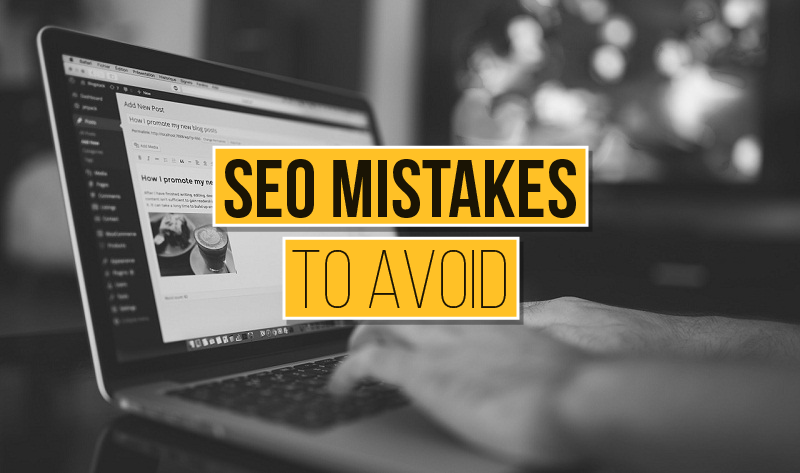Hello!
 SEO isn’t a thing you can bother once a year. It’s a never-ending process that requires tracking and regular development.
SEO isn’t a thing you can bother once a year. It’s a never-ending process that requires tracking and regular development.
Moreover, SEO is extremely competitive – making minor mistakes, you give a chance to your competitors to outrank you. Having lots of tasks to solve, a webmaster can easily overlook some SEO errors on the site which can lead to undesirable consequences. Ironically, most of these errors are easy to fix.
In this post, we are showing you 20 common SEO mistakes you should avoid to maximize your SEO performance.
#1 Not optimizing for the mobile era
How does your website perform on mobile devices? As mobile searches have already surpassed desktop ones, search engines started rewarding mobile-friendly websites and penalizing sites that are not optimized for mobile devices.
To quickly test how easily a visitor can use your page on a mobile device, go with a free Mobile-Friendly test:
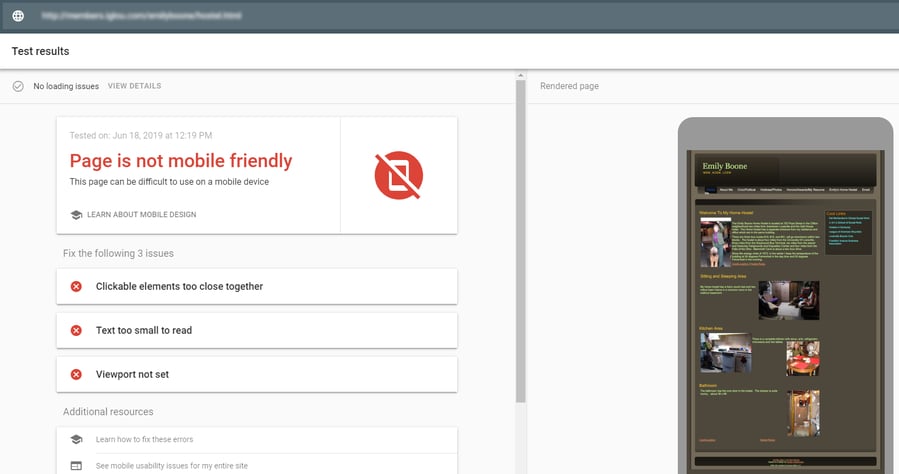
#2 Creating duplicate content
Duplicate content is the content that appears in more than one place on the Internet. It can exist within the same or different domains.
It’s the most common SEO mistake for e-commerce websites, as these sites have a large number of product pages which are often pretty similar.
When facing duplicate content, search robots can’t choose which pages should be indexed and may decide not to show them in the search results.
To avoid this problem, always create unique content for your website. It relates not only body texts bit also meta tags and URLs.
#3 Having slow loading speed
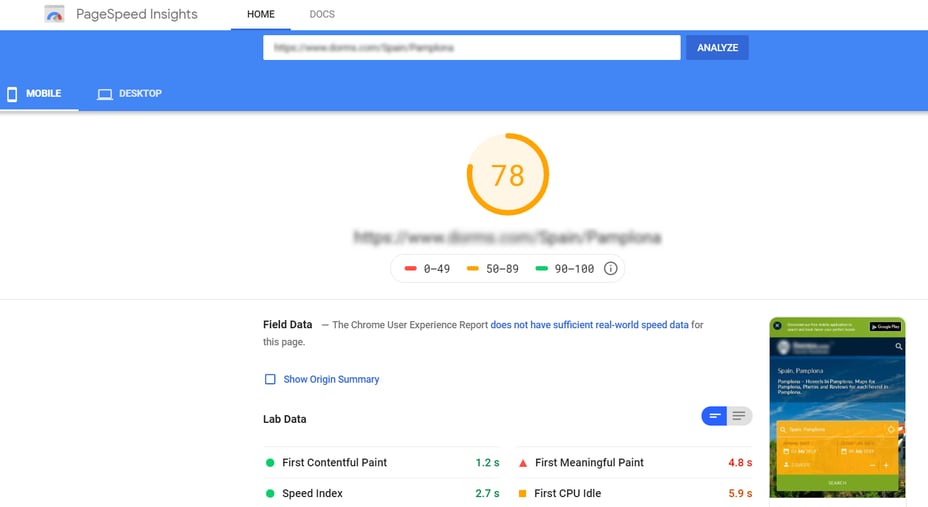 If you want to upscale your business, having a fast website is one of these SEO domination tactics you should use. Page speed is an important factor both for search robots and for your visitors. The more time it’s needed for your page to get loaded, the lower your SERP will be.
If you want to upscale your business, having a fast website is one of these SEO domination tactics you should use. Page speed is an important factor both for search robots and for your visitors. The more time it’s needed for your page to get loaded, the lower your SERP will be.
Among low site speed reasons, oversized images and poor JavaScript implementation are the most common ones.
With Google’s PageSpeed Insights, you’ll get the report on your page’s performance. The tool analyzes both mobile and desktop versions and also suggests you how to make that page faster.
#4 Ignoring Alt tags
Including image tags is another detail that website owners sometimes forget. Google search robots consider alt tags and read them both to determine what is on the image and understand how it relates to the surrounding text.
Moreover, not optimizing your website’s images, you miss a great source of organic traffic: image results.
#5 Ignoring title tags and meta descriptions
Title tags and meta descriptions are used by search engines to quickly determine the page’s content and form search snippets. Skipping or duplicating them, you miss a huge potential for your content.
We see a lot of websites copy-pasting their meta descriptions from page to page: this hurts your SEO. With unique meta descriptions, you will improve your SEO strategy as well as improve your qualified and targeted organic traffic. So, why don't you do it? Providing unique and persuasive title tags and meta descriptions, you not only improve your SEO but also make people want to click on your listing in search results.
#6 Not setting an internal linking structure
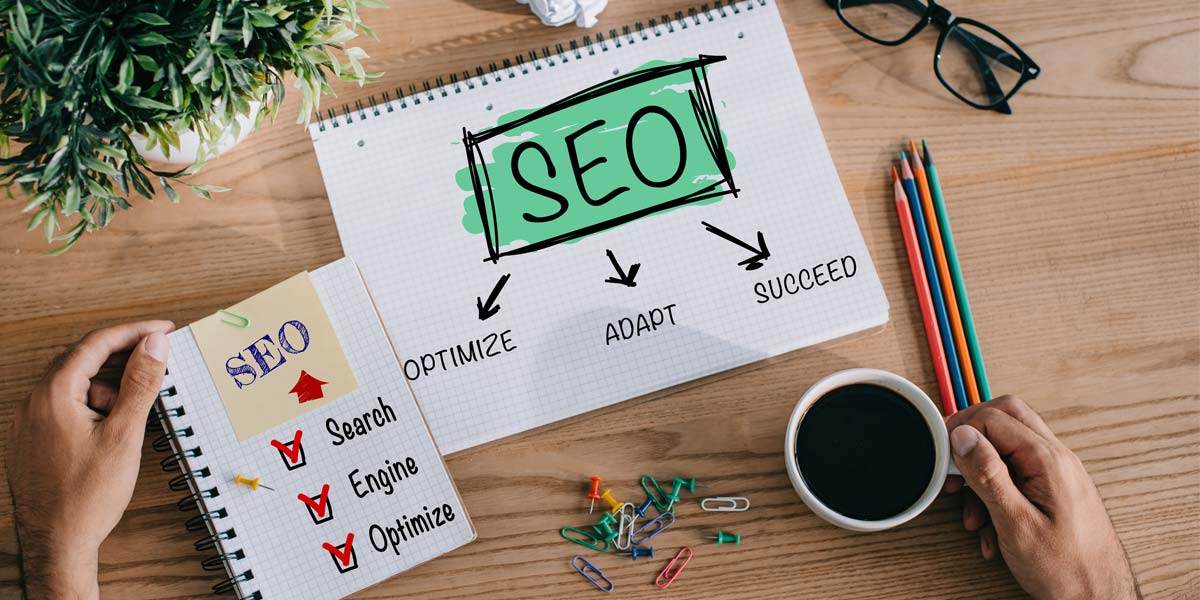 Internal linking serves one of the most important factors in your UX and SEO strategy. However, it’s vastly overlooked even by SEO experts.
Internal linking serves one of the most important factors in your UX and SEO strategy. However, it’s vastly overlooked even by SEO experts.
Internal linking helps search robots identify and index new pages much quicker. Moreover, it drives link equity to new pages making it easier to rank.
#7 Targeting the wrong keywords
Using the wrong keywords within your content often causes poor rankings for the selected keywords. By ‘wrong keywords’ we mean:
High competition keywords
We don’t say ‘high volume keywords,’ as you can sometimes find the popular search terms with pretty reasonable competition level.
Not having a high authority yet, and trying to rank for high competition keywords is almost senseless. With a huge search competition, it’s much better to focus on less competitive but more specific keywords.
Most of keyword research tools (such as Ahrefs, Serpstat, or Moz) as well as the most effective SEO tools show the keyword difficulty score, you should pay attention to it when conducting keyword research.
Wrong search intent
Targeting informational intent is a common mistake for e-commerce websites. There are many proven ways to match content with search intent so never forget to denote search intent with keywords you use within your content.
Ahrefs provides the list of modifiers specific to every type of search intent:
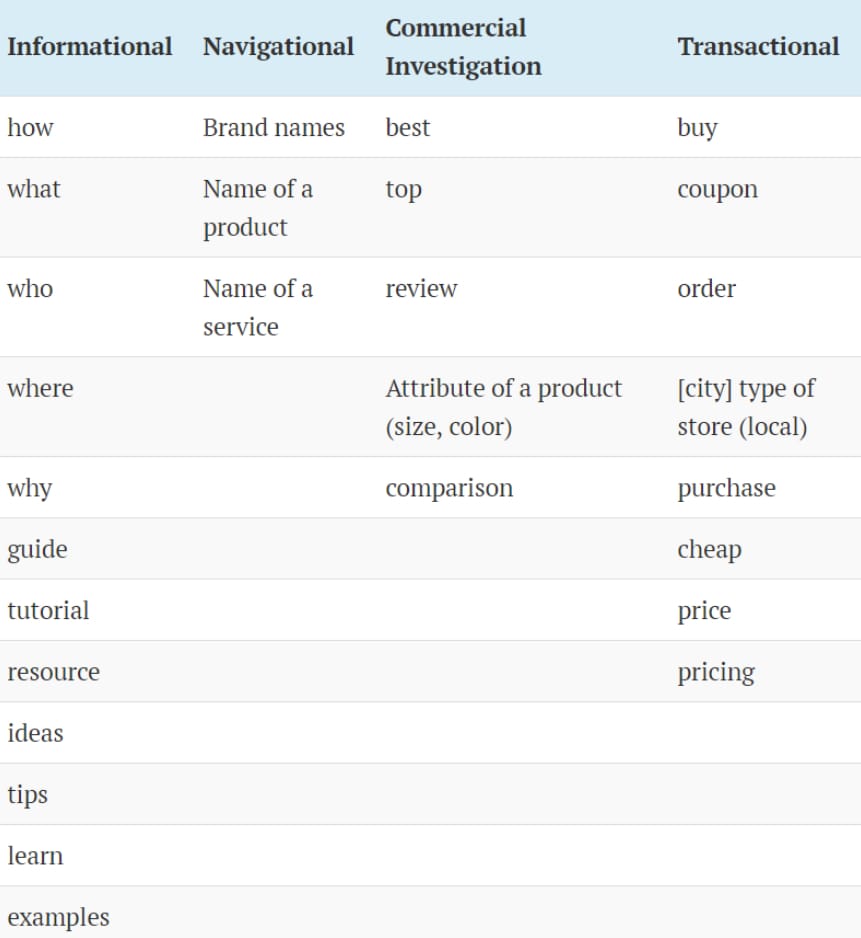
To fix the issue and collect the right keywords, you should go traditional keyword research and apply filters that fit your criteria. we usually use Serpstat with for this purpose.
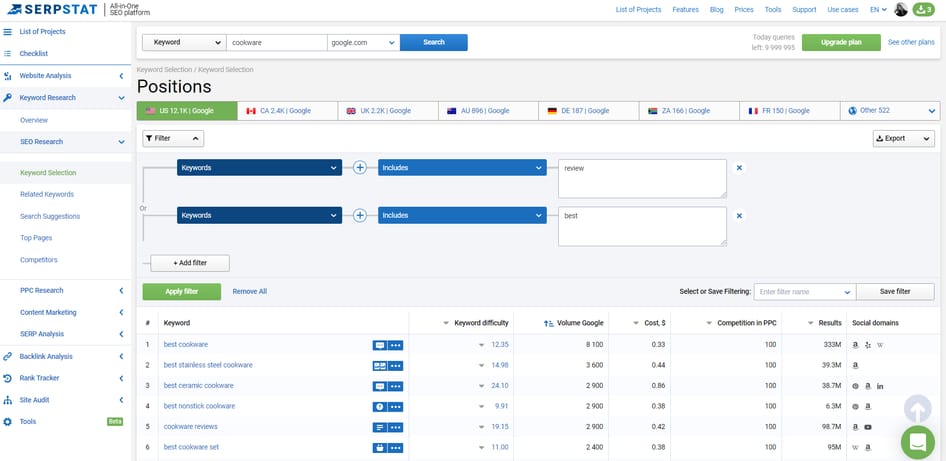 First of all, we enter the target keyword into its search box, select the country, and go to the Keyword Selection section. You can apply up to 10 filters in this report.
First of all, we enter the target keyword into its search box, select the country, and go to the Keyword Selection section. You can apply up to 10 filters in this report.
To get the list of queries with commercial intent, we select ‘Keywords > Includes > review’ OR ‘Keywords > Includes > best’ filters.
Now the tool shows me 12.1K search terms that include ‘review’ or ‘best’ words. You can also specify any other words or filters. For instance, to select keywords with only a low-to-middle keyword difficulty level, apply the Keywords Difficulty filter.
#8 Not optimizing for local search
If your business targets audiences in a specific geo-location, not optimizing for local search, you lose a great deal of visibility.
Including region-specific keywords in your body texts, titles, and meta descriptions, you’ll increase your chances to rank for local search queries. You should also include your address, local phone number, and list yourself on local based websites.
#9 Keyword stuffing
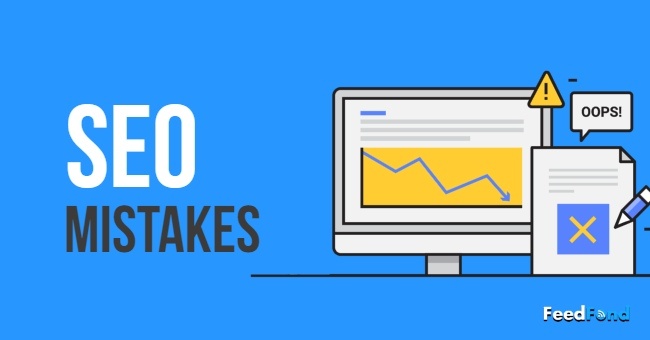 Keyword stuffing is bad for SEO and also for reputation management. Businesses often try to cram keywords into their content to rank for as many queries as possible. However, if the content is rich with keywords and looks unnatural, search engines recognize it immediately.
Keyword stuffing is bad for SEO and also for reputation management. Businesses often try to cram keywords into their content to rank for as many queries as possible. However, if the content is rich with keywords and looks unnatural, search engines recognize it immediately.
Here’s how Google comments on keyword stuffing:
"Keyword stuffing" refers to the practice of loading a webpage with keywords or numbers in an attempt to manipulate a site's ranking in Google search results. Often these keywords appear in a list or group, or out of context (not as natural prose). Filling pages with keywords or numbers results in a negative user experience, and can harm your site's ranking. Focus on creating useful, information-rich content that uses keywords appropriately and in context.
#10 Producing low-quality content
Creating high-quality content is one of the main SEO strategies and techniques you should implement. These days it’s extremely popular to create blogs for e-commerce websites. Not to miss the opportunity to increase your site visibility on the web, businesses produce lots of content that provides little value to readers.
While quality content can drive you long-term results, poorly-crafted content may even hurt your rankings. As search considers consider user behavior when ranking your website, the fact users quickly bounce from your low-quality pages may cause rankings to drop.
#11 Not refreshing old content
Being busy with creating new content pieces and product categories, you might have forgotten about existing content assets.
However, optimizing and upgrading old content, your chances to get quick results are much higher than when focusing on new content only.
#12 Not bothering user experience
Improving UX is the right way to improve your SEO performance. With the introduction of RankBrain algorithm in 2015, Google started to consider behavior metrics, including bounce rate, dwell time, organic CTR, etc.
The above-mentioned mobile optimization, content quality, and loading speed aren’t the only factors affecting user experience. Here are several more aspects crucial for good UX:
- Navigation. This includes clear site structure, menu button, the opportunity to conduct site search, etc.
- Design. This part mostly concerns mobile responsiveness. Do the images fit the smartphone screen size? Can a user tap the CTA button with a finger? Check all these issues to make sure your site gives users the best experience.
- Pop-ups. This showing up windows often irritate users and result in poor user experience. If you can’t go without them, make them easy-to-close or ignore.
#13 Building irrelevant links
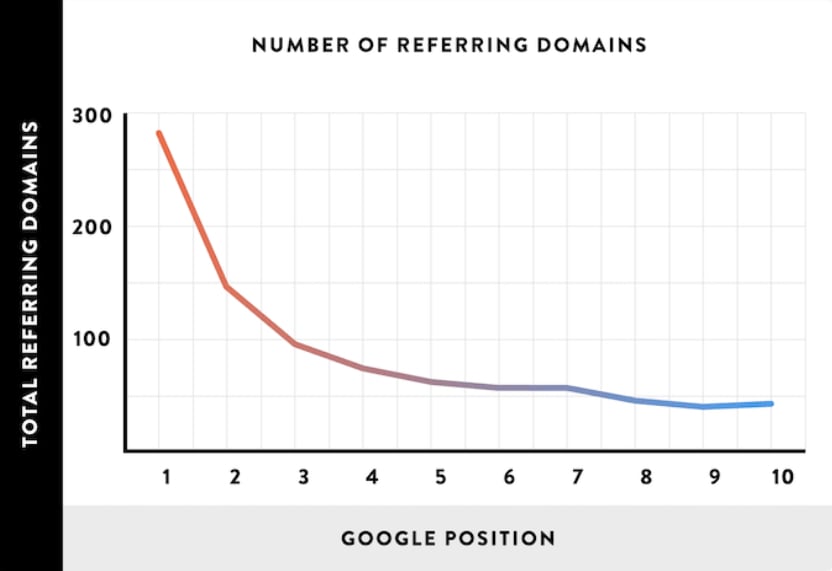 Everybody knows backlinks do matter for your SEO. Backlinko research shows that the number of referring domains correlates with site’s rankings more than any other factor.
Everybody knows backlinks do matter for your SEO. Backlinko research shows that the number of referring domains correlates with site’s rankings more than any other factor.
But many link builders overlook the fact that quality and relevance of backlinks are much more important than their number. Trying to get lots of links as fast as possible, they earn irrelevant links that don’t add any authority to their domains. If you want to improve your SEO, earn high-quality, relevant links with your content marketing strategy, here's how.
#14 Linking to low-quality pages
Blog editors and website owners regularly receive requests for adding links to external pages in exchange for some service or a sum of money. Unfortunately, the suggested content is often low-quality. Adding these links to your content, you risk having your site authority decreased.
#15 Not fixing broken links
Having a large number of links that link to empty or non-existent pages will affect your rankings negatively.
First of all, broken links waste your crawl budget: instead of crawling important content, search crawlers are visiting non-existent pages. Secondly, coming across empty pages repeatedly, search robots will decide your content is out-of-date.
#16 Not setting clear content structure
Content structure is one of the increasingly important components of high-quality content.
Not using H1/H3 subheads properly not only results in poor user experience but also confuses search robots.
#17 Using similar anchor texts everywhere
Using ‘click here,’ ‘learn more,’ and other generic texts for your site links is a waste of SEO opportunities. Moreover, having the same anchor texts within your on-page content may even cost you getting a penalty by Google.
To make the most out of your anchor texts, you should be very careful when using them.
 Brian Dean figured out the perfect anchor texts percentages that work for him:
Brian Dean figured out the perfect anchor texts percentages that work for him:
- Branded anchor text: 70%
- Naked links: 20%
- Generic anchors: 5%
- LSI, partial match anchors: 1-5%
- Exact match anchor text: less than 1%
#18 Not checking recently updated pages’ technical optimization
Every change to your site structure or content can cause new technical issues. Not auditing your pages when updating them, you risk overlooking some crucial errors.
As checking the whole domain would take lots of time and limits, I’d recommend you trying Serpstat Page Audit feature. With it, you can analyze the technical optimization of a single page and get the tips to how to improve it.
#19 Not building your site architecture
The right site structure can boost your SEO significantly, while the wrong one can ruin all your SEO efforts.
Not providing the directions in your robots.txt file, having complicated URL structure, not creating a sitemap – all these mistakes prevent search robots from crawling your site efficiently. SEO can quickly become technical very quickly and this is one of the main reasons why businesses prefer to outsource search engine optimization and work with experts in their fields.
#20 Not tracking your results
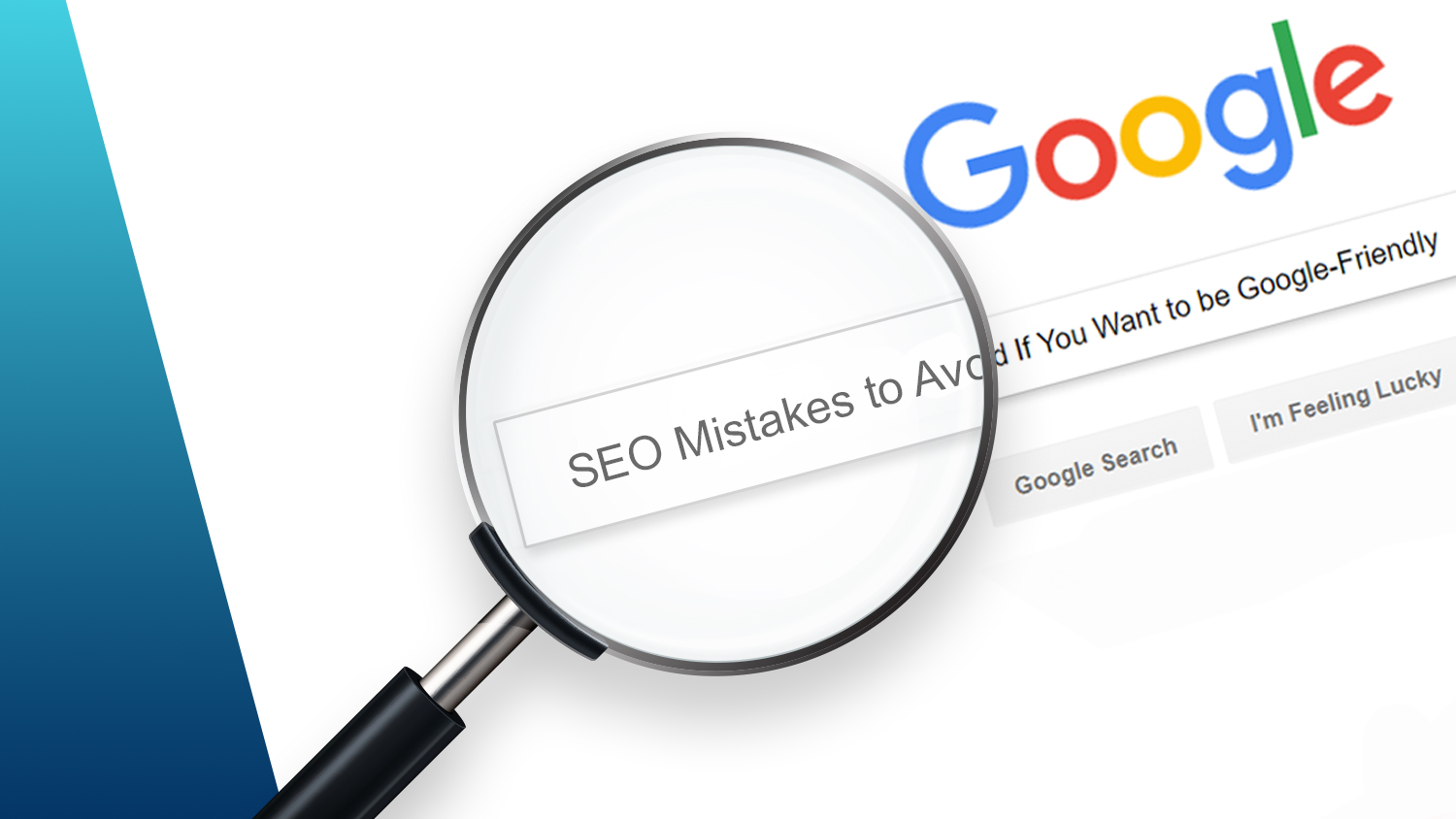 Last but not least. Not tracking your SEO performance, you’ll never know whether you need to change or develop your strategy. Keep evaluating your results to identify what works and what doesn’t.
Last but not least. Not tracking your SEO performance, you’ll never know whether you need to change or develop your strategy. Keep evaluating your results to identify what works and what doesn’t.
Don’t focus on individual keyword rankings. Organic traffic, click-through rate, ROI, etc. – all these KPIs are also important performance indicators.
So, how to improve your website rankings by avoiding SEO mistakes?
As you can see there are many ranking factors that can affect your website SEO and one of the biggest mistakes you can do is thinking it's possible to do SEO on your own. In fact, there are many more (More than 200 ranking factors). Nobody really knows the full algorithm of Google or search engines. That's not a problem though.
Start by creating useful content for your audience. Create content for people, not search engines. You want your content to be interesting, educational, funny, controversial, etc. In other words, you want your content to be compelling and engaging. Once your content is created, optimize it with SEO and keywords.
Without being an SEO expert or a digital marketing geek, if you follow our advice and avoid the 20 SEO mistakes we mentioned above, we can ensure you that your content and your website rankings will improve.
Thank you!
Subscribe to our newsletter! Join us on social networks!
See you

